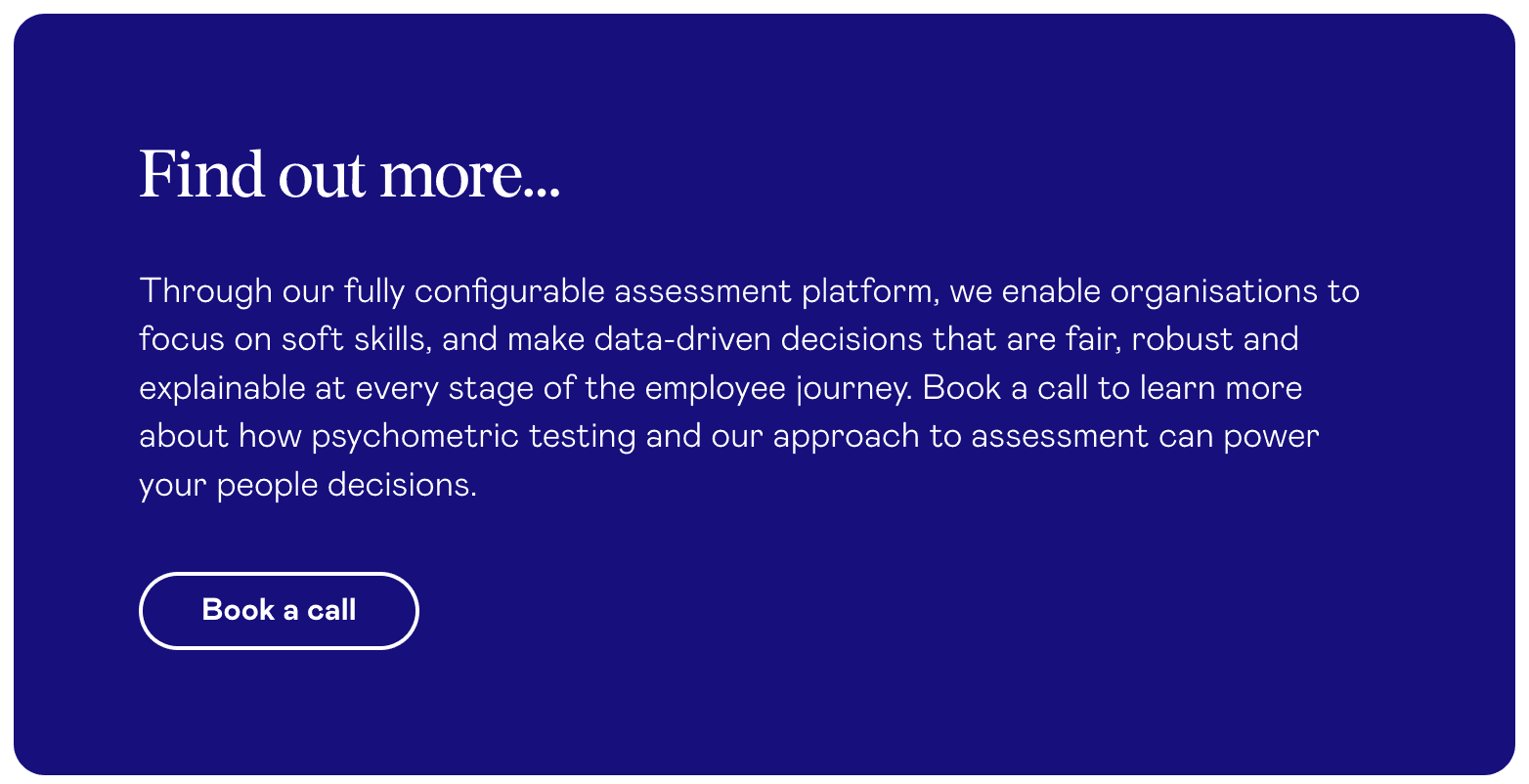Take a sneak peek of the product with an interactive tour | View now
Why hire graduates? - 6 Benefits of hiring graduates

Graduate programmes offer young job seekers an introduction to the working world while earning a good starting salary and undergoing training. Hiring graduates is advantageous for businesses too, enabling them to secure talent from a younger generation who bring new perspectives and skills to the business compared to experienced hires. By working across multiple areas of the business, graduates have the opportunity to learn, and employers who run successful programmes are able to secure future talent for the long term.
Why do companies want graduates?
Graduate schemes are an important talent pipeline through which organisations can find the raw talent that they need to secure the future success of their business. According to research by the Institute of Student Employers (ISE), the top skills that employers are looking for when they are hiring graduates is a mix of hard skills and soft skills. Hard skills include presentation skills and job-specific technical skills. Soft skills that employers desire in graduate recruitment include resilience, teamwork, taking responsibility, self-awareness, interpersonal skills, problem-solving, commercial awareness and business-appropriate communication.
Graduate recruitment and entering the working world
The ISE’s guide to student recruitment and development highlights that an estimated 800,000 young people leave schools, colleges and universities each year, bound for the working world. Looking specifically at hiring graduates, applying for these roles is competitive with an average of 60 applications per role. In the last two years, the job search has become more intense as many employers postponed their 2020 graduate recruitment process due to the pandemic.
An article in the Financial Times explains that job opportunities for graduates are well below pandemic levels, impacting on the career progression of the younger generation. EY’s UK Chair, Hywel Ball, said graduate applications were up by 60% compared with 2019, and 12% compared with 2020. International law firm, Allen & Overy, says applications for its UK graduate scheme grew by 38% ins 2021 with year-on-year growth for the past three application cycles. Unilever, the consumer goods company, which recruits graduates across 53 countries, saw a 27% rise in applications from 2019 to 2020.
Despite disruption to the working environment and cost pressure on hiring graduates, most graduate recruitment programmes have been restarted since the pandemic and organisations can once again tap into this rich source of talent.
What are the main benefits of hiring graduates?
1. Investing in the future
The biggest benefit of hiring new graduates must be that this source of talent is an investment in the future of the business. Due to their lack of experience, graduates may seem like a blank canvas compared to experienced hires, but the latest assessment tools mean that it is possible to select early career talent for potential, not track record. Whole-person assessment gathers a rounded view of job seekers that focuses on their strengths and fit to a role and to an organisation.
Investing in graduate recruitment goes beyond the business too, as organisations that work harder to bring in young talent are investing in the future of our society as well. Research from The Prince’s Trust highlights an ‘aspiration gap’, a phenomenon which has emerged post-pandemic, in which the younger generation is losing hope for the future. Those from disadvantaged backgrounds being hardest hit. Hiring graduates is therefore an opportunity to support career progression through access to job opportunities and upskilling. If employers do not act, then: “We risk losing their ambition and potential to long-term unemployment - to the detriment of their future and to the recovery of our economy" according to the Trust’s research into young people entering the working world.
2. Long term prospects
Myths about graduates leaving their jobs once they are trained persist but in fact, their retention rate is not very different to that of other young people. Data from the ISE shows that two years after joining, 86% of school and college leavers are retained compared to 81% of graduates, after three years this drops to 78% and 71% respectively and after five years 67% of school and college leavers are retained, compared to 53% of graduates. One of the advantages of hiring new graduates is bringing talent in as a long-term prospect and allowing these individuals to inform, and be a part of, your culture and organisational growth.
The best way to retain graduates is not just a compensation package but a rewarding and engaging role that points towards career progression. A survey by Forbes found that graduates who feel underemployed in their role are those most likely to leave and restart their job search. It’s therefore important to build development activities into a graduate programme, based on robust assessment of an individual’s strengths and development areas.
3. Workforce diversity
Graduate recruitment is an opportunity for businesses to hire more diverse talent. A report by Bright Network finds that encouragingly, major developments have been made by universities in successfully attracting a far more diverse and representative pool of students. The percentage of graduates attending university from disadvantaged backgrounds has increased significantly since 2006, the least advantaged young people in England are now 65% more likely to go to university or college than they were in 2006 and the average participation rate of young people at university has risen from approximately 10% in the 1960s to approximately 40% today.
To ensure that diverse representation flows through into your graduate recruitment process, ensure that your assessments are fair by design. At Sova, we are committed to changing assessment for good through delivering fair, equitable outcomes without compromising on anything else, meaning that our assessments are balanced for diversity as well as organisational outcomes.
4. Future skills
Today’s graduates are digital natives. This is a category applied to children who have grown up using technology including the internet, computers, mobile devices and social media. According to Technopedia, this exposure to technology in the early years is believed to give digital natives a greater familiarity with, and understanding of, technology than people who were born before it was widespread. More experienced hires are currently less likely to be digital natives and therefore may have to work harder to cultivate some of the most in-demand skills.
When hiring graduates, make sure you have a clear understanding of what you need to assess in candidates so that you can grow the mix of skills, behaviours and values that your organisation needs. Using robust, customisable assessment tools will enable your organisation to tap into the benefits of hiring graduates that will set your business up for future success.
5. Learnability
Another reason to hire graduates is their habit of learning. Lifelong learning is a habit that we know will be critical to the future as change and rapid technological development become the norm. The UK Government’s report on The Future of Skills and Lifelong Learning finds that lifelong learning can “enable a more adaptable workforce to respond to market and technological transitions in a way that continues to deliver productive employment for those affected, helping to create an inclusive economy”.
Since graduates are well versed in learning, this is one of the many benefits of hiring graduates. Assessment techniques allow for the assessment of ‘learnability’ as a trait. In an assessment designed to measure ability to learn, candidates observe data, learn the underlying patterns, and apply their learning to solve problems. This type of assessment is becoming more relevant in today’s world of work.
6. Cost effectiveness
Despite all the advantages of hiring graduates, commercial pressures mean that employers also want to know how much it costs to hire graduates. According to The Graduate Recruitment Bureau, the average cost per hire for a graduate was £5,325. And according to Graduate Jobs UK, the median starting salary for UK graduates in 2022 is expected to be £30,000 for the fifth consecutive year.
However, it’s important not to focus purely on what a business might be saving on yearly salaries and to look at return on investment in the long term. According to the ISE, graduates’ ideas and skills can make a huge difference to your bottom line: Graduates contribute approximately £1 billion of added value to the UK economy annually.
